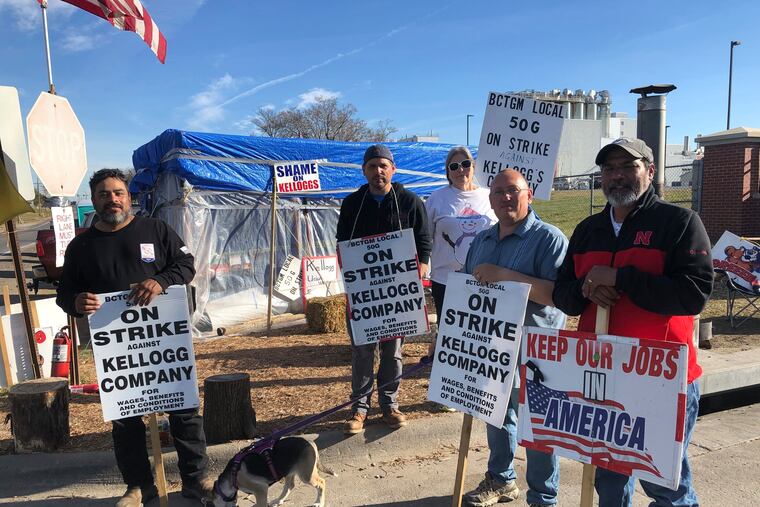A generous unemployment package can help workers on the job, too | Opinion
Unemployment insurance gives workers a safety net to fight for a fairer workplace. Let's expand this benefit to all people, regardless of their job and how long they have been doing it.

Recently, Kellogg’s workers ended their 11-week strike after agreeing to a new contract that included better pay and improved benefits. Many had been regularly working 80-hour weeks to keep the factories open and Americans fed during the COVID-19 pandemic.
Their struggle for a fairer workplace is not unique. For generations, Americans have labored to make their places of work better. But some of their most effective tactics, like strikes, carry risks and costs, including the loss of income. This severely limits workers’ ability to fight for their rights.
We can dramatically improve workers’ power and leverage when fighting for fairness — by overhauling the system of unemployment insurance.
As someone dedicated to fighting for workers’ rights, I have spent years telling people about the importance of unemployment insurance, both on and off the job.
» READ MORE: Pa. and N.J. jobless workers just lost their unemployment benefits as federal aid expired
Unemployment insurance has the obvious benefit of letting workers know they can support their families even if they lose their job. But a generous unemployment package can help them even when they are working.
How? By giving workers a safety net to fight for a fairer workplace.
As benefits get more generous, the cost of exiting dangerous and exploitative workplaces decreases. Workers would have less to lose when they confront their employers about bad conditions, organize a union, or go on strike. If the worst happens and they lose their job, a generous system of unemployment insurance lets them support their families.
Unfortunately, millions of workers looking for good work do not qualify for benefits. For example, striking workers, gig workers, many low-wage and part-time workers, caregivers returning to the workforce, undocumented workers, recent graduates, and people leaving incarceration are all excluded from the program.
State representatives fighting for workers’ rights should focus their efforts on overhauling the state’s system of unemployment. We need to expand unemployment benefits to all workers, regardless of the type of job and how long they have been doing it, and increase the amount of money offered while unemployed so that workers feel safe asking for fairness on the job.
Let’s make the complicated system of unemployment benefits a lot simpler: If you are out of work, you get a living income. No exceptions.
“Let’s make the complicated system of unemployment benefits a lot simpler: If you are out of work, you get a living income. No exceptions.”
Some states are already taking steps to improve the system: In Maine, for instance, state officials have improved benefits, eligibility, and access, including a first-in-the-nation unemployment “navigator” program to help workers receive their benefits. Because unions connect members to benefits while they are unemployed, unionized workers are more likely than nonunionized workers to receive unemployment when they are out of a job. A navigator program helps expand that support to all workers, nonmembers and members alike, while connecting them to organizations that can support them once they’re back at work.
When I talk about improving unemployment benefits, one concern I often hear (particularly during the pandemic) is that people who get generous benefits won’t look for work.
Evidence for this remains scarce. When pandemic benefits were cut early in some states, the employment rate hardly changed.
Unemployment benefits don’t last forever, so people have no choice but to look for work. Having a cushion means they can take the time to look for the job that best suits their skill set and experience, which, in the long run, creates a more productive workforce.
Facing growing economic inequality, stagnating wages, and declining labor union membership, workers need opportunities to level the field of an already risky battle. Unemployment insurance represents one of the best ways to support workers when they are at their most vulnerable — out of a job — and when they’re in the thick of the fight for a better workplace.
To win those fights, all workers deserve a benefit that reflects their worth and a support network to back them up. An economy that works for all of us will not happen without it.
Francisco Diez is the worker justice policy advocate at the Center for Popular Democracy.